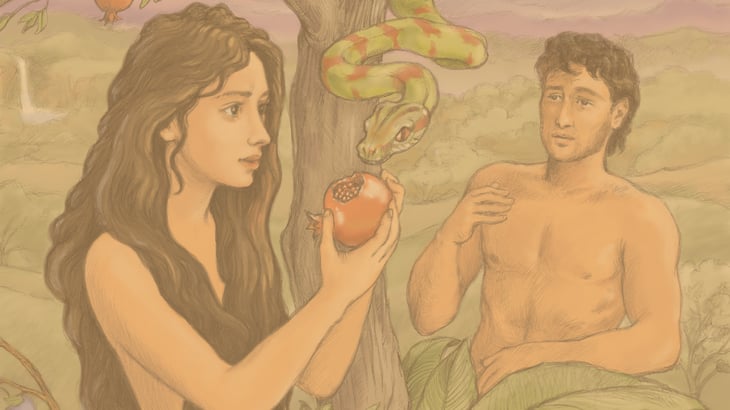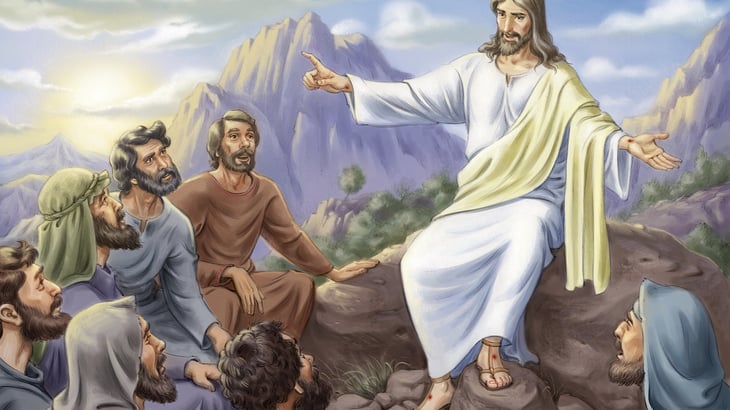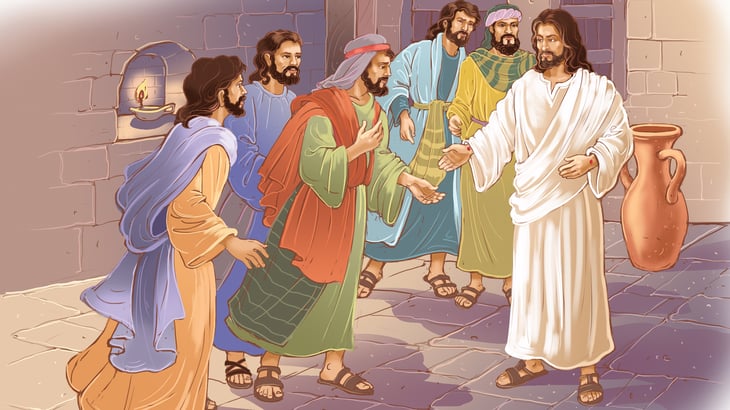Teaching Jesus in the Old Testament: Genesis 3
To get the most out of Genesis 3, it is important to recognize what happens prior to the events of this chapter. In the beginning, God created the heavens and the earth. Then God created light with a mere word. He followed with the creation of the lights in the heavens, plants, and animals. He topped this creation with Adam, formed of the dust. God made man in His image and breathed life into him, both physical and eternal. Adam was His greatest creation. Because Adam did not have a suitable partner, God created Eve using a rib from Adam’s side. Adam and Eve were perfect for each other. Despite all these blessings, Adam and Eve listened to the serpent. They chose of their own free will to disobey God.
The Reluctant Sunday School Teacher
I have a confession to make. I was not looking forward to teaching Sunday School this year, and on some Sundays I still trudge out the door instead of merrily skipping to teach. I had numerous reasons for my lack of enthusiasm. We are living in a pandemic, which means I would be donning a mask. I have four kids with whom I had just come off of distance learning. I had my fill of teaching in any capacity. Spending more time teaching was not on my to-do list. I didn’t want to give up my time in adult Bible study. I love asking questions and listening to the questions others ask.
Teaching Jesus in the Old Testament: Exodus 12
The importance of the blood on the doorpost and lintel likely “passed over” the Israelites the night before the Lord freed them from centuries of slavery under Pharaoh. Being of desperate mind, we can guess they regarded the act as nothing more than a divine hoop through which to jump to reach liberty and safety. Yes, God did intend the physical, present liberation of His chosen people. Yet in doing so, He inaugurated a process that would culminate at the death of the Lamb and be effectual at every baptism. Thanks to the work of the Holy Spirit, we connect the doorpost to the cross, and both to the baptismal font. The themes of provision, sacrifice, liberty, and restoration tie all three together.
Teaching Jesus in the Old Testament: Genesis 22
Jesus in the Old Testament?
This month begins a new series of materials for teaching Sunday School. Christians often view the Old Testament as intimidating, irrelevant, evidence of God’s judgment and wrath—a long, boring history of a people long gone. Far from this, the Old Testament prepares us for the New Testament or, more precisely, Genesis through Malachi points us to Jesus Christ.
Teaching the Twelve Apostles: James the Lesser
In the final blog regarding Jesus’ twelve apostles, we finish with James the son of Alphaeus. Scholars often refer to this student of Jesus as “the Lesser,” in relation to James, one of Christ’s inner circle along with Peter and John. Although James the son of Alphaeus enjoys a smaller role in the recorded ministry of Christ, we take care not to minimize his contribution. Notably, Jesus gave him power to heal diseases and cast out demons, and he was present for the feeding of the five thousand, the Great Commission, the ascension, the selection of Matthias to replace Judas, and early outreach ministry as recorded in the Book of Acts. I will present lessons in relation to James and a suggestion for teaching in the Sunday School classroom.
Teaching the Twelve Apostles: Simon the Zealot
The Gospels reveal little regarding Simon the Zealot. It is important to distinguish Simon the Zealot from Simon Peter. As “Simon” was a common name in Jesus’ context, it is not surprising that the Twelve included more than one. Regarding this Simon’s name, “Zealot,” there are possibilities. Either “Zealot” is about the apostle’s passionate faith, or his membership in a New Testament group called the “Zealots,” or both.
Given that details of Simon are so spare, I will address a couple of issues related to Simon’s zeal.
Teaching the Twelve Apostles: Thaddaeus
Compared to others like Peter or Judas, we read little of this apostle. Therefore, this month I’ll present Thaddaeus related to his context. There is much we can learn from the events that took place where Thaddaeus was present.
Teaching the Twelve Apostles: Bartholomew
There is relatively little we know for certain regarding Bartholomew, other than his inclusion with the list of the twelve disciples. His name is the combination of two Hebrew words, “bar(son)” and “Talmai.” As it was common for sons to carry their father’s name, it's likely his father’s name was Talmai. “Bar” is part of other Biblical names. Examples include, Barabbas (son of the father), Barnabas (son of encouragement) and Bartimaeus (son of Timaeus).
There is some thought that Bartholomew is also Nathanael, who is mentioned in the Gospel of John. This is good reason to assume this. In the first three Gospels, what are called the synoptic Gospels, Bartholomew is listed closely with Philip. As you will read below, Philip finds Nathanael upon encountering Jesus. These common connections to Philip suggest Bartholomew and Nathanael are the same person. We will proceed under this assumption.
A New Kind of Sunday School
Excitement is in the air. You can feel the anticipation of kids getting ready for school, the sigh of relief from parents that they may get a small break now, and the flutter of teachers’ hearts (and stomachs) as they prepare for another school year. Or is it the sensation of tension you feel? The nervousness of kids getting ready for their first day back or maybe even the anxiety and stress of teachers and parents alike? This year, it seems to be a bit of both worlds, excitement and anxiety. It’s the unknown of what teaching and learning during this pandemic will feel like and how it will unfold in the following months. So what will your Sunday School look like this fall? There are several options to satisfy the unique needs of your students and families. Let’s take a look.
5 of the Best Books for Sunday School Teachers
Here are five books about children’s ministry—from early childhood to young adult—that will have you feeling ready to take on your role as a Sunday School teacher!






















